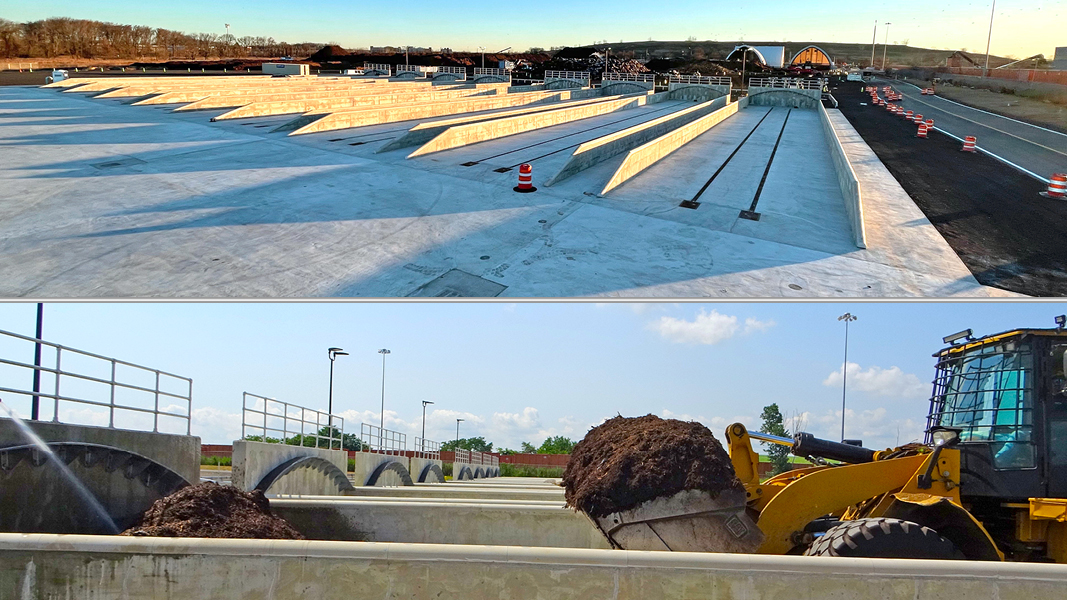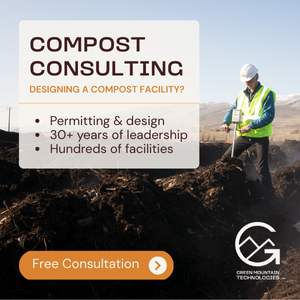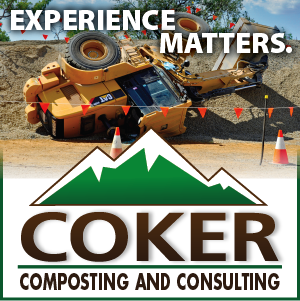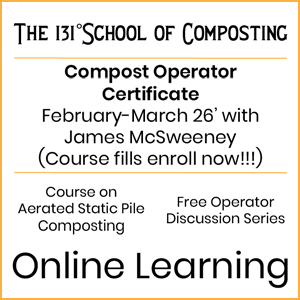Top: The 16-bay SG Bunker aerated static pile composting facility is located at the closed Fresh Kills Landfill on Staten Island in New York City. Photos courtesy Sustainable Generation
The New York City (NYC) Department of Sanitation (DSNY) cut the ribbon on the expanded composting facility it owns at the closed Fresh Kills Landfill on Staten Island. The facility, Staten Island Compost, is managed by DENALI Water Solutions, LLC, and has been processing primarily yard trimmings in open windrows for about 10 years, along with some source separated food waste from NYC households and schools. The new facility, which has capacity to process 60,000 tons/year of organics, features a 16-bay SG BUNKER® System with GORE® Covers and in-floor aeration trenching, supplied by Sustainable Generation. Composting is done in three phases: two 4-week phases under the GORE Covers and one 2-week phase of curing under cover. “The actual (permitted) expansion is from 30 tons/week to 600 tons/week (of food waste),” explains Brian Fleury, DENALI Water Solutions Senior Vice President. “The full permitted expansion is 30,000 tons/year of food waste. All feedstocks will be composted in the SG Bunker System, as its capacity allows, but there is ample room to compost more yard trimmings in traditional windrows as DSNY’s organics program continues to expand.”
All food waste must be composted through the covered aerated static piles to meet the New York State Department of Environmental Conservation’s regulations for leachate control. “The Staten Island Compost Facility is a model for composting facilities looking to process more food waste on a smaller footprint while meeting or exceeding all environmental regulations for clean air and water,” notes Scott Woods, CEO of Sustainable Generation. Overall composting process time is expected to be cut in half, from six to eight months in windrows to three to four months in the SG BUNKER system.
The Staten Island Compost Facility opened in 2014. Compost is marketed under the Big Apple Compost® brand. According to DSNY, the facility has produced over 21,000 tons of compost over the last several years. “Historically, about 60% of that finished compost is sold to landscapers, and 40% is given away to community groups, parks, residents, and others,” says the agency. “DSNY expects the amount of compost produced and given away to increase substantially with the facility’s massively expanded capacity.”















